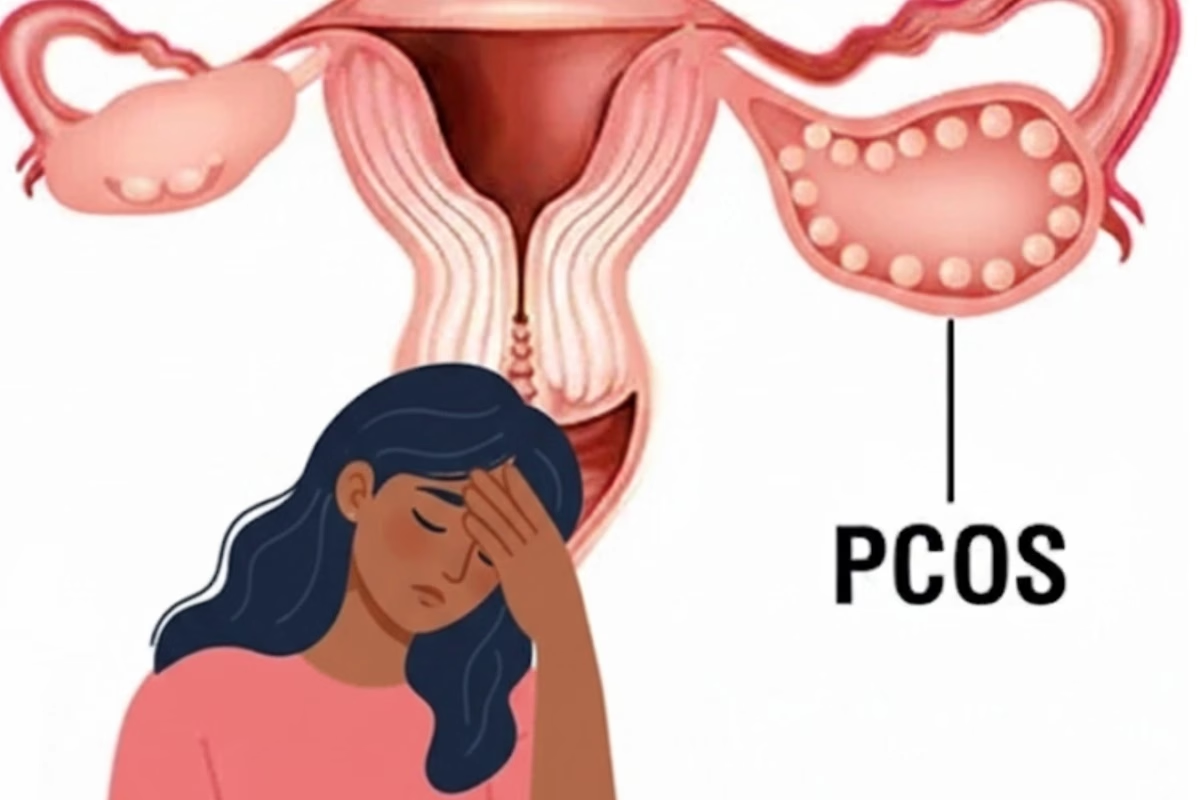Have you noticed more young women today facing hormonal issues like irregular periods, weight gain, or acne? These could be signs of PCOS (Polycystic Ovary Syndrome). While this condition was less common in the past, experts say lifestyle changes over the years have made it more frequent.
In a recent video, Prashant Desai from Stanford School of Medicine explains why PCOS is on the rise and shares simple habits to protect your hormones.
Why Is PCOS (Polycystic Ovary Syndrome) More Common Today?
Prashant Desai points out five key lifestyle changes that have contributed to the increase in PCOS among young women:
1. Diet Differences
Grandmothers mostly ate home-cooked, fresh food. Their meals included ghee, whole grains, seasonal vegetables, and local produce. Today, processed snacks, sugary drinks, and fast food have replaced traditional meals. This shift affects hormonal balance and increases PCOS risk.
2. Less Physical Activity
Earlier generations stayed active through daily chores like cooking, cleaning, and farming. Physical activity helped maintain healthy hormones. Modern sedentary lifestyles, with long hours of sitting and less movement, contribute to hormonal issues.
3. Excess Sugar Consumption
Sugar was once eaten only on special occasions. Today, it’s a daily part of most diets through desserts, packaged drinks, and snacks. Excess sugar disrupts metabolism and increases the chance of developing PCOS.
4. Increased Screen Exposure
Grandmothers weren’t exposed to phones, computers, or TVs. They spent time outdoors, watched the sunrise, and socialised with family and friends. Screen addiction today affects sleep, mental health, and hormone function.
5. Exposure to Hormone Disruptors
Earlier, food had fewer pesticides, plastic usage was minimal, and chemical-heavy cosmetics were rare. Today, these substances interfere with natural hormone balance, making young women more vulnerable to PCOS.
Lifestyle Changes To Protect Your Hormones
Dr. Desai recommends adopting simple traditional habits to reduce the risk of PCOS:
1. Eat fresh, home-cooked, and locally sourced food.
2. Stay physically active every day.
3. Limit sugar intake to special occasions.
4. Reduce screen time and spend quality time with family and friends.
5. Avoid hormone disruptors such as pesticides, plastics, and chemical-heavy cosmetics.
PCOS is rising due to changes in diet, lifestyle, sugar intake, screen exposure, and hormone disruptors. By adopting these old-fashioned habits, young women can manage and even reverse early signs of Polycystic Ovary Syndrome. Encouraging daughters and young women to follow these steps can lead to better hormonal health and a healthier life.
